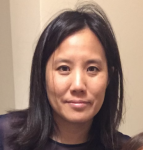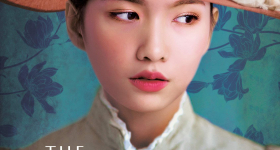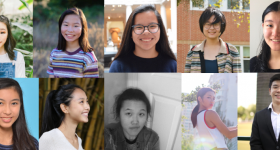In the world of fiction, immigrant voices are recognized and lauded as aesthetic pleasures: this year, by the Pulitzer, that of Viet Nguyen, in the past, those of Jhumpa Lahiri, and Junot Díaz. But in the world of reporting and academic studies, where an authoritative voice about the truth is required, the glass ceiling looms.
Expertise is distinct from experience, or so goes the justification for how an individual who is ethnically connected to a culture is allowed to speak for it, but is at the same time disqualified as an expert because they are too close to it. One must have objectivity to have expertise. As innocuous as this reasoning might sound, it’s a way for those in power to naturalize their power over other groups. It’s enabled men to legislate over women’s bodies, and whites to colonize nonwhites.
The novelist and journalist Suki Kim struggled with the racial criteria of objectivity after the publication of her 2015 book, Without You, There Is No Us: My Time with the Sons of North Korea’s Elite. Kim’s book is a riveting account of life in a university under one of the most intense and misunderstood dictatorships in the world. To smuggle her documents out of the country—including over 400 pages of notes and original intelligence on the North Korean regime—Kim took extreme measures, such as hiding USB keys on her body. To Kim’s surprise, her book was greeted with a backlash. She was accused of deception and lies because she had done undercover reporting for six months as a teacher in a Pyongyang University. Her recent article in The New Republic, “The Reluctant Memoirist,” responds to these accusations.
I met up with Kim at a Tribeca café, where she weighed in on the controversy, as well as her relationship to writing, language.
EC: How did you start writing?
SK: I didn’t major in writing and I didn’t do an MFA. I came to writing in my own way. I’ve always written as a child. But that was in Korea, in Korean. It was just something I’ve always done. And then there was a whole detour when I was learning to speak English. So I guess it’s like getting back to, sort of like, second nature? I didn’t major in writing because I didn’t speak English for most of my high school years and into college. And then after college I found my way back and had the confidence to pursue it.
EC: What is the difference for you in writing in Korean and writing in English?
SK: I don’t write in Korean anymore. There was such a big gap when I came here when I was thirteen and just learning English. Language-wise, Korean is a language I identify with when I have very primary feelings because it is my mother tongue and is always inside the way I think. Words like snow or rain, I can feel them if I say them in Korean but I can’t really feel them in English. So I think that odd little distance might bury vivid feelings because English is a little more analytical. On some level that might be a plus, as sometimes that distance might bring clarity.
EC: So, the design of language is subject material in itself, not just a conveyor of content being expressed.
SK: I don’t really write in Korean but I find that fact kind of painful, to be honest. In my case the bilingualism is absolute, so when I don’t write in Korean it’s a choice. It’s a heavy thing for me. My sister is a visual artist, so it’s different for her. For me it’s possibly heavier because I’m a writer. Language is your voice if you’re a writer, so you are not just losing a language but your identity. If reading and writing is how you relate to the world at an early age, that loss is… a very heavy one. I have the strongest accent in the family, and I think of it a bit as an emotional wound.
EC: Or as a resistance by your muscles to change?
SK: I had a lot of television appearances in South Korea while I was on book tour. It was amazing because I am absolutely fluent in Korean so it’s as if I never spent any time abroad, it’s also odd why Korean stuck with me to that level. When I watched myself on television, I noticed that I speak as if I’ve always lived in Korea. How come I don’t have any accent at all? My brother has a slight American accent when he speaks Korean, but I have none. I think there is emotional baggage or hurt there, it’s the only way I can explain it, because it’s a little odd. I have no American accent, my Korean is like someone who is Korean and who has never left the country.
EC: What are you working on right now?
SK: I just finished a piece of racism and sexism in the publishing industry [“The Reluctant Memoirist”]. Racism and sexism are symptoms of intellectual intimidation in this country. What I found enraging about the backlash against my book, Without You, There Is No Us, is that it’s an account of the only time a writer has gone undercover in North Korea. The whole of writing on North Korea is either defector accounts, or journalism by white commentators.
SK: My book took ten years to write. I conceived it on my first visit to North Korea. I went back five times over a decade. I wrote op-eds and investigative journalism pieces on the subject. I got a Fulbright specifically to be in South Korea where I could do research. I got funding from Guggenheim, the Soros Foundation, and went to Laos, Thailand, and China to interview defectors. I already had a book contract when I went to North Korea for six months, where I went undercover posing as an ESL teacher and evangelical Christian. But when the book came out it was packaged as a memoir.
If I were white and male, it would never have been packaged as a memoir. If a white person does it, it’s literary journalism. If a person of color writes, it’s a memoir. The minute they decided to market it as a memoir, other things happened that I didn’t expect. Readers thought it was about returning home. People thought I was a schoolteacher who had sold out my students. Tons of reviews came out, mostly focused on my deception. If I were accepted as a journalist, then the story would be different: I went undercover with a noble purpose, to discover truth.
EC: All of a sudden what you’re doing is personal not professional, just because of the label.
SK: It’s racist and sexist. Authority is bestowed by the white male gaze. We’re talking the New York Times, Chicago Tribune, all the media focused on the idea that I had lied. Why is it that most of the experts and scholars on North Korea are mostly white males? None of the defector accounts, such as Aquarium of Pyongyang by Kan Chul Hwan, which is excellent and by the first defector to escape a North Korean gulag, received much attention, at least compared to more recent accounts (both fiction and nonfiction). I have been in and out of North Korea more than five times, I speak Korean fluently, I have reporting experience—what do I need to do to be an expert? For a decade going over to North Korea, I was worried the voices of the people there would not get out.
EC: Is it possible that Without You There Is No Us frightens the western world because it presents a way of life and a world that eludes the west?
SK: They cannot look at the North Koreans as equals. In the case of North Korea there is no willingness to connect. The west wants to maintain the status quo so they don’t have to connect at all to the people there. It is about keeping the Other at a distance. I think my anger has a lot to do with that, my disillusion. If my name was not Suki Kim, they would not have dared to call my work a memoir.
I do believe writing should be above the ugliness of systematic racism and sexism. If I didn’t believe it, I wouldn’t be a writer. There was a lot of my heart poured into Without You, There Is No Us, but I basically spent a year defending myself. Even Asian American publications perpetuated this misperception. If the New York Times does it, then other publications follow. I spent a year telling audiences all over the world: no I’m not a teacher, no I am not North Korean, no I wasn’t going home, no I didn’t sell out my students. I have to ask them, why is it so hard for you to accept that I was an undercover journalist? Why is it so hard for you to accept that I might be an expert on this topic?










Comments